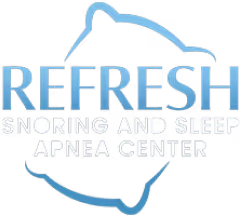If you suspect you may have sleep apnea, your doctor may recommend an in lab sleep study. A sleep study, also known as a polysomnogram (PSG), is a diagnostic tool used to evaluate your sleep patterns and diagnose a wide variety of sleep disorders, one of the most common being sleep apnea. In this blog post, we’ll discuss what to expect during a sleep study for sleep apnea diagnosis.
Before the Study
Before your sleep study, you will have a consultation with a sleep specialist who will review your medical history and symptoms. You may be asked to keep a sleep diary for a week or two before the study, which will help the specialist evaluate your sleep patterns and better understand your concerns around sleep.
During the Study
During the sleep study, you will spend the night in a sleep center or hospital room that is designed to feel as much like home as possible. A technician will attach electrodes to your scalp, face, chest, and legs to monitor your brain waves, muscle activity, heart rate, and breathing. You may also wear a pulse oximeter, which measures the oxygen level in your blood, and a nasal cannula, which measures airflow in and out of your nose.
The technician will give you instructions on how to prepare for sleep, and then you will be allowed to sleep as usual. The technician will monitor you throughout the night and may make adjustments to the sensors or equipment as necessary. While the study may be foreign and uncomfortable, the technician will do everything possible to make you feel at home.
The study collects multiple levels of data about your sleep. They can collect information on everything from type of sleep (REM dreaming vs NREM deep sleep), to sleeping position, to breathing issues, heart rate, unusual behaviors, even leg movements.
After the Study
The next morning, the technician will remove the sensors and equipment. You will be able to return home and resume your normal activities. The data collected during the study will be sent to a sleep specialist who will interpret the results and make a diagnosis as well as recommendations for treatment. There are more than 80 different sleep disorders that can be diagnosed off of a PSG. It is important to follow up with your physician after the study to review the results and create an appropriate care plan for your needs.
Conclusion
A sleep study is an important diagnostic tool for sleep apnea and other sleep disorders. While the process may seem intimidating, it is a relatively painless and non-invasive procedure. In some instances when appropriate, or an in lab sleep study is not an option the sleep study may also be performed at home with portable home sleep testing equipment. By understanding what to expect during a sleep study, you can feel more comfortable and prepared for the process. If you suspect you may have sleep apnea, talk to your doctor about a sleep study and take the first step toward better sleep and overall health.
Contact our Snoring and Sleep Apnea Treatment facility in Castle Rock, Colorado to learn more!

.svg)




